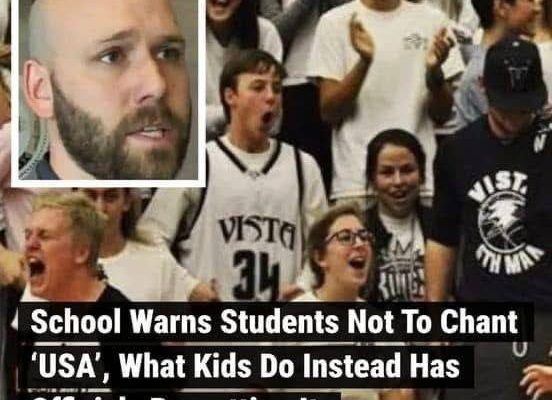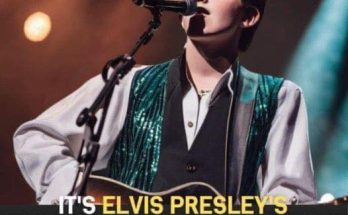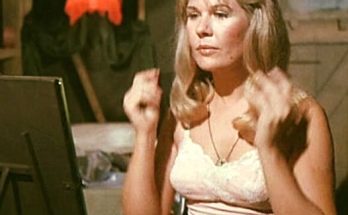A California high school became the center of controversy after officials urged students to reconsider chanting “USA” during sports events and rallies, citing concerns about inclusivity and unintended messaging. However, the students’ passionate response to the directive has reignited discussions nationwide about patriotism, free speech, and the interpretation of unity.
The Controversy Begins
Vista Del Lago High School in Folsom, California, found itself in the spotlight when school administrators advised students to be mindful about chanting “USA” at school events. The concern, as explained by staff, stemmed from the possibility that the chant could be misinterpreted as exclusionary or insensitive in certain contexts.
Daniel Thigpen, Communications Director for the Folsom Cordova Unified School District, explained the reasoning: “The goal is to promote empathy, kindness, and true patriotism. You can cheer for your country without inadvertently alienating others.”
While the chant itself wasn’t outright banned, guidelines suggested that it should only be used at specific moments, such as after the Pledge of Allegiance or the national anthem. The announcement, delivered over the school’s P.A. system and reiterated in an email to families, was met with mixed reactions from both students and parents.
Photo Credit: Ian D. Keating/Flickr, Tyndall Air Force Base
Photo Credit: Ian D. Keating/Flickr, Tyndall Air Force Base
The Students’ Response
For many students, the guidance felt like an unnecessary restriction on their expression of pride in their country. Senior Ryan Bernal expressed his confusion: “To say USA is to show that we’re all united as Americans. It doesn’t matter what your background is—we’re all part of the same nation.”
Instead of silencing their patriotic enthusiasm, the students decided to push back in a creative yet respectful manner. During a highly anticipated school rally, they organized a moment to chant “USA” louder than ever, ensuring their voices echoed throughout the gym. Their actions demonstrated their belief in unity and pride while sparking a broader conversation about the intent behind such expressions.
The Bigger Picture
The controversy at Vista Del Lago reflects a broader trend seen in schools across the country. While “USA” is a symbol of national pride for many, it has occasionally been misused in derogatory contexts to exclude or demean others. Critics of the chant’s unrestricted use argue that the sentiment behind it matters as much as the words themselves.
Mike Garrison of the California Interscholastic Federation commented, “There’s a time and a place for everything. Chanting ‘USA’ should come from a place of unity, not divisiveness.”
The school’s principal echoed this sentiment, emphasizing the need to ensure that the chant promotes togetherness rather than creating division, even unintentionally.
A Community Divided
Parents and community members were quick to weigh in on the issue. Some supported the school’s approach, agreeing that sensitivity and inclusivity should guide students’ actions. Others, however, felt the school had overstepped, seeing the guidance as an infringement on free speech and a misinterpretation of students’ intentions.
One parent, Natalie Woodbury, shared her perspective: “I want my kids to chant ‘USA’ as a way to bring people together, not to make anyone feel excluded. Patriotism is about lifting each other up, not dividing us.”
Social media also became a battleground for opinions. Some users applauded the students for standing up for their beliefs, while others criticized the school for even raising the issue.
A Teachable Moment
Amid the controversy, district officials clarified that the chant was not banned and expressed their hope that the incident could serve as a learning opportunity for students. “Our aim is to foster thoughtful dialogue about how we express ourselves and what those expressions mean to others,” Thigpen said.
Moving Forward
The events at Vista Del Lago High School have highlighted the fine line between fostering inclusivity and preserving freedom of expression. For the students who chanted “USA” in unison, the moment wasn’t just about defiance—it was a declaration of pride and a call for unity.
As debates about patriotism and inclusivity continue to unfold, this story serves as a reminder of the power of dialogue and the importance of understanding the diverse perspectives that shape our communities.



